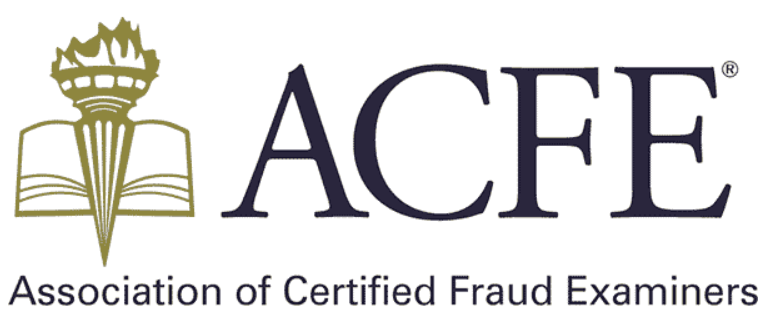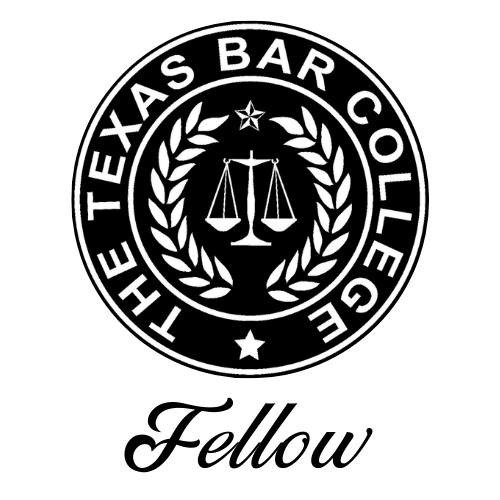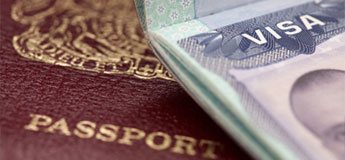


Allows U.S. employers to temporarily employ foreign workers in specialty occupations and may require an attorney that specializes in business & work visas. If a foreign worker in H-1B status quits or is dismissed from the sponsoring employer, the worker can find another employer, apply for a change of status to another non-immigrant status, or must leave the US.
The regulations define a “specialty occupation” as requiring theoretical and practical application of a body of highly specialized knowledge in a field of human endeavor including, but not limited to, architecture, engineering, mathematics, physical sciences, social sciences, biotechnology, medicine and health, education, law, accounting, business specialties, theology, and the arts, and requiring the attainment of a bachelor’s degree or its equivalent as a minimum (with the exception of fashion models, who must be “of distinguished merit and ability”.) Likewise, the foreign worker must possess at least a bachelor’s degree or its equivalent and state licensure, if required to practice in that field. H-1B work-authorization is strictly limited to employment by the sponsoring employer. The current law limits to 65,000 the number of aliens who may be issued a visa or otherwise provided H-1B status each fiscal year.
Are designed for intra-company executive and people with specialized knowledge transferees coming to work in the United States. The L-1A visa holders must have been employed in an executive or managerial capacity for the foreign company at an overseas location continuously for at least one year out of the past three years. Further, the L-1A holder must be coming to the U.S. to work for the U.S. company in an executive or managerial capacity.
The category covers specialized knowledge personnel. An example of specialized knowledge personnel would be an individual who possesses proprietary knowledge about a company’s product and who travels to the U.S. to impart his or her specialized knowledge to new U.S. employees.
The requirements that need to be met are that the employee must have worked abroad for the overseas company for a continuous period of one year during the preceding three years. The company at which the employee fulfilled the work requirements must be related to the U.S. company in a specific manner, such as parent/subsidiary, sister companies with a common parent. The company must be a qualifying organization-one that is doing business in the United States and one other country throughout the entire period of transfer. The employee must have been employed abroad in an “executive” or “managerial” position (L-1A) or a position involving “specialized knowledge” (L-1B). The employee must be coming to the U.S. company to fill one of these capacities (Executive, Managerial, or Specialized Knowledge). The employee must be qualified for the position by virtue of his or her prior education and experience. The L-1 visa holder must intend to depart the United States upon completion of his or her authorized stay.
The E-1 treaty trader visa allows an individual to come to the U.S. for the purpose of furthering substantial trade that is international in scope. The trade must be primarily between the United States and the treaty country where the person holds citizenship. The E-2 treaty investor visa allows an individual to come to the U.S. for the purpose of furthering a substantial investment in a U.S. enterprise made by individuals or businesses that are citizens of a treaty country. Only certain countries are allowed to apply for E visas. To find the country list please visit this government website.
A permanent labor certification issued by the Department of Labor (DOL) allows an employer to hire a foreign worker to work permanently in the United States. In most instances, before the U.S. employer can submit an immigration petition to the Department of Homeland Security’s U.S. Citizenship and Immigration Services (USCIS), the employer must obtain an approved labor certification request from the DOL’s Employment and Training Administration (ETA). The DOL must certify to the USCIS that there are no qualified U.S. workers able, willing, qualified and available to accept the job at the prevailing wage for that occupation in the area of intended employment and that employment of the alien will not adversely affect the wages and working conditions of similarly employed U.S. workers. Once the Department of Labor certifies the application, then you may start the process with USCIS. The process can be complicated and is constantly changing. Please contact us.
Have you received a letter from Immigration saying they are going to audit your business? They are wanting to ensure that all your employees are legally working and that your company has filled out the I-9 paperwork correctly. You can be fined for not having the I-9 paperwork filled out properly. ICE is currently doing a lot of audits and is beginning to crack down on employers.
**Please note not everything that is listed encompasses all that can be done to help you stay in the United States, these are just some forms of visas and eligibility to stay in the United States.


Our attorneys are joined by Kristin Tausk,
firm administrator and paralegal.

Allows U.S. employers to temporarily employ foreign workers in specialty occupations and may require an attorney that specializes in business & work visas. If a foreign worker in H-1B status quits or is dismissed from the sponsoring employer, the worker can find another employer, apply for a change of status to another non-immigrant status, or must leave the US.
The regulations define a “specialty occupation” as requiring theoretical and practical application of a body of highly specialized knowledge in a field of human endeavor including, but not limited to, architecture, engineering, mathematics, physical sciences, social sciences, biotechnology, medicine and health, education, law, accounting, business specialties, theology, and the arts, and requiring the attainment of a bachelor’s degree or its equivalent as a minimum (with the exception of fashion models, who must be “of distinguished merit and ability”.) Likewise, the foreign worker must possess at least a bachelor’s degree or its equivalent and state licensure, if required to practice in that field. H-1B work-authorization is strictly limited to employment by the sponsoring employer. The current law limits to 65,000 the number of aliens who may be issued a visa or otherwise provided H-1B status each fiscal year.
Are designed for intra-company executive and people with specialized knowledge transferees coming to work in the United States. The L-1A visa holders must have been employed in an executive or managerial capacity for the foreign company at an overseas location continuously for at least one year out of the past three years. Further, the L-1A holder must be coming to the U.S. to work for the U.S. company in an executive or managerial capacity.
The category covers specialized knowledge personnel. An example of specialized knowledge personnel would be an individual who possesses proprietary knowledge about a company’s product and who travels to the U.S. to impart his or her specialized knowledge to new U.S. employees.
The requirements that need to be met are that the employee must have worked abroad for the overseas company for a continuous period of one year during the preceding three years. The company at which the employee fulfilled the work requirements must be related to the U.S. company in a specific manner, such as parent/subsidiary, sister companies with a common parent. The company must be a qualifying organization-one that is doing business in the United States and one other country throughout the entire period of transfer. The employee must have been employed abroad in an “executive” or “managerial” position (L-1A) or a position involving “specialized knowledge” (L-1B). The employee must be coming to the U.S. company to fill one of these capacities (Executive, Managerial, or Specialized Knowledge). The employee must be qualified for the position by virtue of his or her prior education and experience. The L-1 visa holder must intend to depart the United States upon completion of his or her authorized stay.
The E-1 treaty trader visa allows an individual to come to the U.S. for the purpose of furthering substantial trade that is international in scope. The trade must be primarily between the United States and the treaty country where the person holds citizenship. The E-2 treaty investor visa allows an individual to come to the U.S. for the purpose of furthering a substantial investment in a U.S. enterprise made by individuals or businesses that are citizens of a treaty country. Only certain countries are allowed to apply for E visas. To find the country list please visit this government website.
A permanent labor certification issued by the Department of Labor (DOL) allows an employer to hire a foreign worker to work permanently in the United States. In most instances, before the U.S. employer can submit an immigration petition to the Department of Homeland Security’s U.S. Citizenship and Immigration Services (USCIS), the employer must obtain an approved labor certification request from the DOL’s Employment and Training Administration (ETA). The DOL must certify to the USCIS that there are no qualified U.S. workers able, willing, qualified and available to accept the job at the prevailing wage for that occupation in the area of intended employment and that employment of the alien will not adversely affect the wages and working conditions of similarly employed U.S. workers. Once the Department of Labor certifies the application, then you may start the process with USCIS. The process can be complicated and is constantly changing. Please contact us.
Have you received a letter from Immigration saying they are going to audit your business? They are wanting to ensure that all your employees are legally working and that your company has filled out the I-9 paperwork correctly. You can be fined for not having the I-9 paperwork filled out properly. ICE is currently doing a lot of audits and is beginning to crack down on employers.
**Please note not everything that is listed encompasses all that can be done to help you stay in the United States, these are just some forms of visas and eligibility to stay in the United States.

Gene has vast experience in criminal appeals and is very familiar with the overall process. It's is critical for a client to select an attorney that has worked many times with these types of cases.

Our firm is committed to protecting the rights of those from the business community suspected of fraud. Penalties can be very severe so these charges must be taken seriously and vigorously defended.

Employers can face severe penalties for not having proper I-9 documentation for workers. With recent policy changes it is more critical than ever that you are prepared to defend your business when going through an audit.